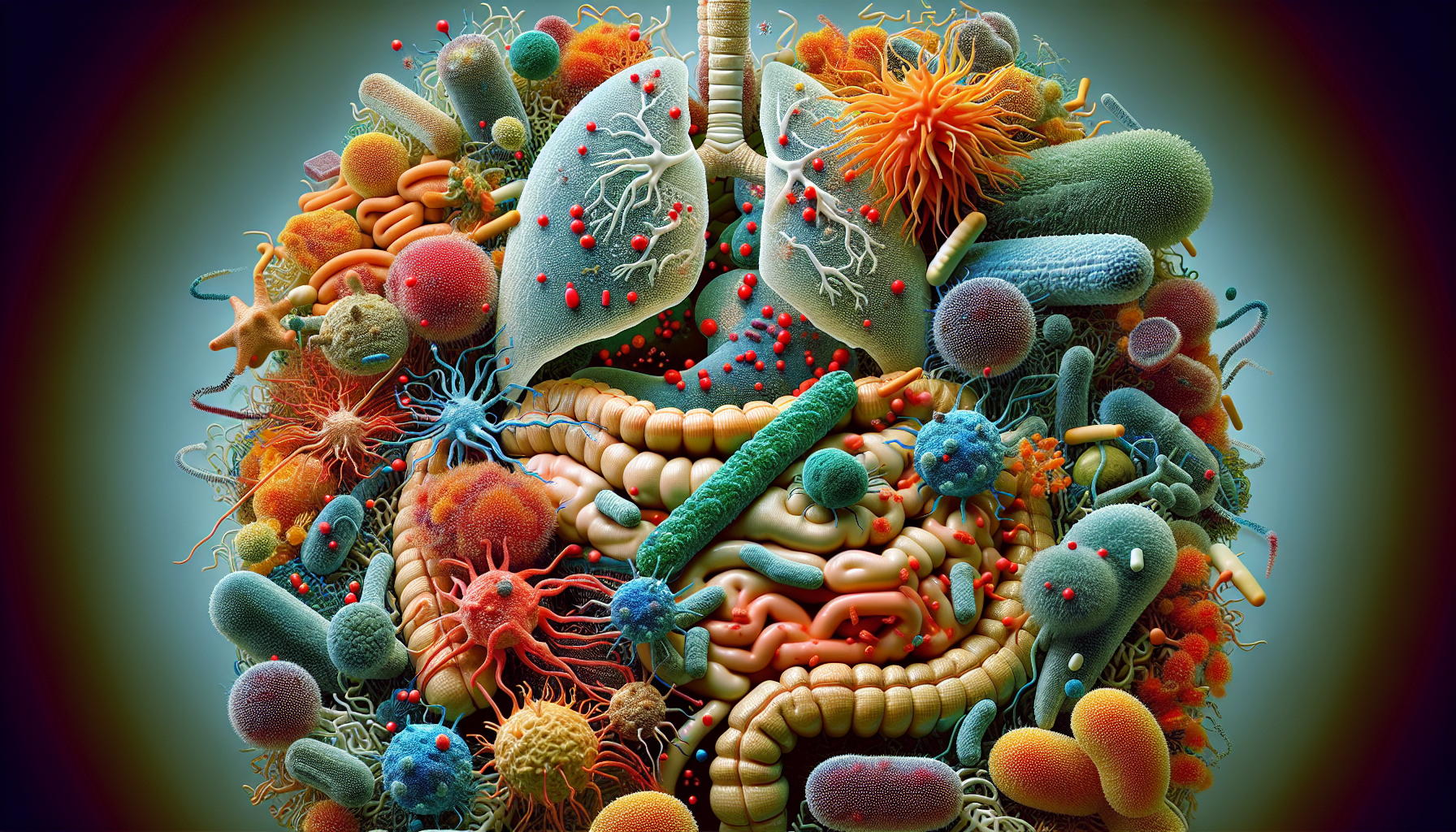The gut microbiome, an integral part of the human body, is a complex and dynamic ecosystem of microorganisms that reside in our digestive tract. Its diversity and balance are crucial to our overall health, impacting everything from digestion and nutrient absorption to immune system strength and even mental well-being. In this comprehensive exploration, we’ll delve into the importance of gut microbiome diversity and how it contributes to maintaining optimal health.
Understanding the Gut Microbiome
The human gut microbiome is composed of bacteria, viruses, fungi, and other microscopic living things. Each individual’s microbiome is as unique as a fingerprint, influenced by various factors including genetics, diet, and lifestyle. A diverse and balanced gut microbiome is associated with good health, whereas dysbiosis, an imbalance in these microbial communities, has been linked to numerous diseases.
The Role of Microbiome Diversity
A diverse microbiome is a sign of a healthy gut. It ensures that the body has a wide range of microbial species which can provide different functions and benefits. For instance, some bacteria are involved in the breakdown of dietary fiber, producing short-chain fatty acids that nourish gut cells, reduce inflammation, and help regulate the immune system.
The Connection to Overall Health
Gut microbiome diversity is not only essential for efficient digestive processes but also plays a significant role in preventing chronic diseases. Research has shown that individuals with a varied gut microbiota have a lower risk of developing conditions such as obesity, type 2 diabetes, and cardiovascular diseases. For deeper insights on how a diverse microbiome relates to cardiovascular wellness, readers may find valuable information at Avix Health’s Cardiovascular Health page.
Factors Influencing Microbiome Diversity
Several lifestyle choices and environmental factors can affect the diversity of your gut microbiome:
- Diet: A diet rich in whole foods, fibers, and a variety of plant-based foods can enhance microbiome diversity. On the contrary, a diet high in processed foods and sugar can lead to dysbiosis.
- Antibiotics and Medications: While antibiotics are necessary to fight infections, they can also disrupt the microbiome. It’s crucial to use them responsibly and explore ways to restore gut health post-antibiotic treatment.
- Hygiene and Environment: Overly sterile environments may limit exposure to beneficial microbes. Regular interaction with nature can introduce a variety of microorganisms to the body.
- Stress: Chronic stress can negatively impact gut health, altering the microbiome composition. Managing stress is thus essential for maintaining a diverse gut flora.
Incorporating strategies for a balanced microbiome is discussed in detail in the article on Using Probiotic Foods to Naturally Improve Gut Health.
Benefits of a Diverse Gut Microbiome
A rich and varied gut microbiome can provide numerous health benefits, including:
- Enhanced Digestive Health: A diverse microbiome helps break down complex foods, aids in the absorption of nutrients, and protects against pathogens.
- Improved Immune Function: The gut microbiota trains the immune system to recognize harmful pathogens, thus improving the body’s ability to fight infections.
- Reduced Risk of Chronic Diseases: A diverse gut microbiome is associated with lower inflammation levels, which is a common factor in many chronic diseases.
For those interested in the link between digestive health and chronic disease prevention, the article on The Role of Gastrointestinal Health in Chronic Disease Prevention provides valuable insights.
How to Enhance Gut Microbiome Diversity
To promote a diverse gut microbiome, consider the following lifestyle changes:
Diet Changes
- Increase Fiber Intake: Consume a variety of fruits, vegetables, legumes, and whole grains to provide the necessary substrates for gut bacteria.
- Include Fermented Foods: Yogurt, kefir, sauerkraut, and kimchi are rich in probiotics, which can introduce beneficial bacteria to the gut.
Lifestyle Adjustments
- Limit Antibiotics: Use antibiotics only when necessary and under the guidance of a healthcare professional.
- Manage Stress: Engage in regular physical activity, mindfulness meditation, and ensure adequate sleep to help manage stress levels.
Probiotics and Prebiotics
Supplementation with probiotics and prebiotics can also support gut microbiome diversity. Probiotics introduce beneficial bacteria, while prebiotics serve as food for existing gut bacteria. For information on supplements, refer to Avix Health’s Medication & Supplements.
External Resources for Further Exploration
To delve deeper into the science behind microbiome diversity, several specialized resources can be consulted:
- Gut Microbiota for Health – A platform by the European Society of Neurogastroenterology & Motility providing the latest research and news on gut microbiota. (https://www.gutmicrobiotaforhealth.com/)
- The American Gut Project – A citizen science project expanding our understanding of the human microbiome. (https://americangut.org/)
- International Scientific Association for Probiotics and Prebiotics (ISAPP) – This organization offers science-based information on probiotics and prebiotics. (https://isappscience.org/)
Conclusion
The diversity of the gut microbiome is a cornerstone of human health. It influences various bodily functions and protects against numerous diseases. By adopting a lifestyle that supports microbiome diversity, individuals can improve their overall health and well-being. With continued research and public interest, the importance of maintaining a diverse and balanced gut microbiome is becoming increasingly clear.
As we continue to uncover the mysteries of the gut microbiome, it’s essential to reflect on our daily habits and make informed choices that foster a rich microbial ecosystem within us. By doing so, we not only improve our health today but also invest in a healthier future.



